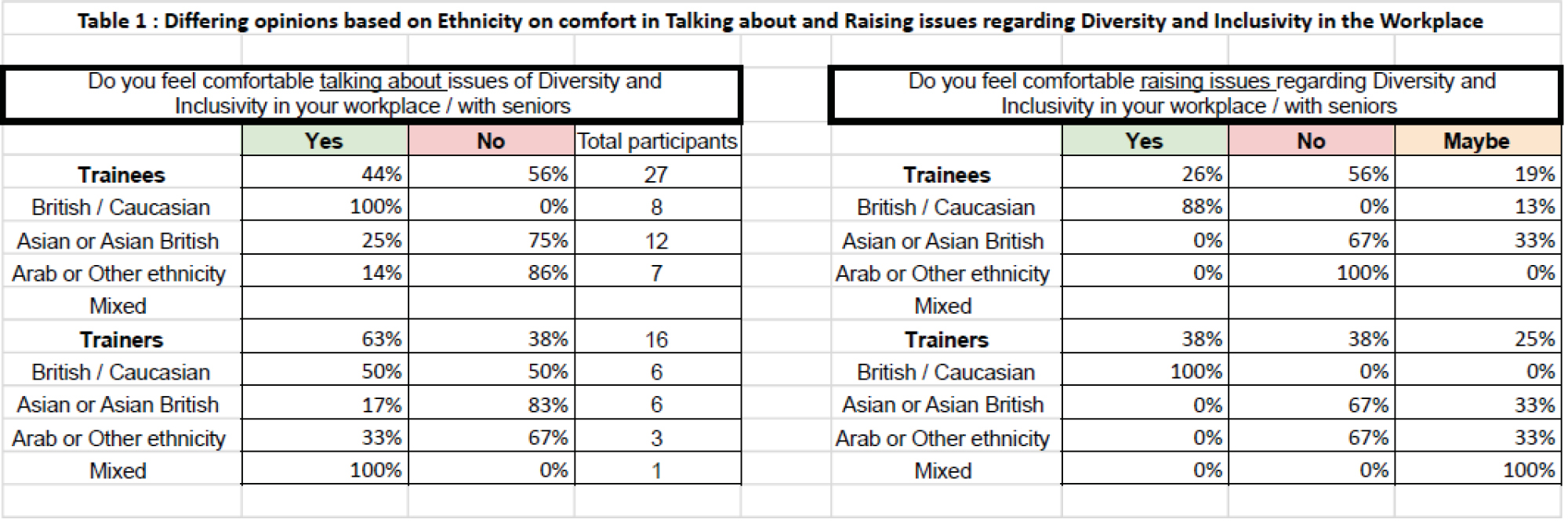
Doctors within the NHS from black, Asian, and minority ethnic (BAME), and International Graduate backgrounds face differential attainment in their progression in the NHS and share differing experiences. It has been reported by the GMC that higher rates of complains against International Graduates may reflect the lack of induction and social integration within the NHS culture [1]. Virtual Reality (VR) provides an immersive platform, with viewers able to involve themselves in realistic scenarios remotely. We utilised 360-degree VR to produce a realistic scenario on the differing experience of a BAME, International Graduated Doctor on their first day in the NHS.
We created a 360-degree VR scenario reflecting a realistic situation of a new International Graduated Doctor and the impact on the behaviours in the professional and social aspects of the NHS. The scenario whilst fictional was informed by real experiences faced by Trainees in our Trust from BAME and other minority groups. The scenario was presented through VR headsets and post-video feedback was gained with anonymous surveys to Trainers (n=16) and Trainees (n=27) from differing ethnic backgrounds.
100% of participants found the video helpful, would recommend it to colleagues, felt immersed in the scenario due to the use of VR, and would be interested in similar Virtual Reality scenarios on different diversity topics. Within ethnicities, the majority of Caucasian participants felt able to talk and raise issues regarding diversity and inclusivity whilst ethnic minorities did not (Table 1). Comments gave insight to participants and their own experiences – with a British participant reflecting ‘Felt ashamed that I have never thought of what happens to my colleagues new to the system’ and ethnic minority participants feeling that the scenario ‘resonated with their experiences’

  |
VR and 360-degree platforms allow an extremely immersive and realistic resource for sharing difficult experiences faced by healthcare workers from various backgrounds within the NHS. Importantly viewers are able to experience and be involved in difficult scenarios within a safe and non-threatening space, allowing reflection and the empowerment for speaking up. By utilising this immersive educational tool, we were able to share the differing experiences faced within the NHS by BAME and International Graduate groups, allowing reflection for change. We hope to further utilise this platform to share the many experiences faced by healthcare workers thus providing insight into the diverse community and improving diversity and inclusion within the NHS.
1. NHS Medical Workforce Race Equality Standard (MWRES); 2020 data analysis report for the NHS
medical workforce. July 2021.https://www.england.nhs.uk/wp-content/uploads/2021/07/MWRES-DIGITAL-2020_FINAL.pdf [Accessed on 21/06/2022]